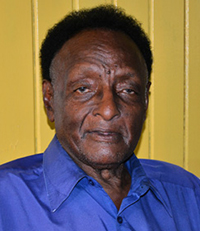Magistrate convicted medico; conviction affirmed by Full Court
IN 1967, a detective inspector used a police trap involving 3 decoys to trap a medical doctor who was practising medicine in a district for gain or reward.
Following evidence a magistrate convicted the doctor who appealed. Conviction was affirmed by the Full Court.
Doctor Doobay further appealed to the Criminal Appellate Court and lost.
As a result of a police trap, three decoys went on three consecutive days viz, 4th , 5th and 6th January, 1966, to the home of the appellant who examined them, administered injections and supplied tablets for which services he was paid.
He was later charged under Sec. 34 (1) of the Colonial Medical Service Ordinance, Cap. 134, for “practising medicine between the 4th and 6th January, 1966, in a medical district in which a duly registered medical practitioner resided, for gain or reward, on three different persons by administering injections and supplying tablets after examining them.”
The Magistrate held that the appellant had ‘practised medicine ‘within the meaning of the section charged since the examinations, diagnosis and prescriptions done by him were acts in imitation of the professional practice of medicine and that they were against the law and fell within the ambit of the Full Court’s decision, in Matthews v Hinds (1941) L.R.B.G. 24., in which it was held that one instance alone was insufficient to constitute the practice of medicine.
On appeal against his conviction and fine of $100 it was argued that (1) the complaint was bad for duplicity in that it was alleged that; (a) the appellant had practised medicine “ between the 4th and 6th January 1966 “ and; (b) he had done so for “gain or reward”; (2) there has been no allegation by the prosecution that the appellant had practised medicine whilst not being duly registered, and; (3) there was no evidence to show that a duly registered medical practitioner resided in the medical district alleged, i.e. Georgetown.
Chief Justice Bollers delivering the reasons for the decision said that: (1) the Magistrate was correct in his finding that the appellant had practised medicine within the meaning of Sec. 34 (1) of Cap. 134, and that the charge was not bad for duplicity since the prosecution could have properly prefer in one information or complaint that several acts committed at different times of one day or dates between any two dates, each of which constitutes a separate offence, but only so long as they relate to an offence of a continuous nature or are demonstrative of a course of conduct manifesting one transaction.
Here, the offence charged was the unauthorised practice of medicine for gain or reward on three consecutive days and the practice of medicine must necessarily be a continuous act, habit and repetition being of its essence: (ii) it is a misconception that it is incumbent upon the prosecution to allege that the appellant is not registered under the Ordinance.
Since this is a fact peculiarly within the knowledge of the appellant, it is an exemptive provision under Sec. 8 of the Summary Jurisdiction (Procedure) Ordinance, Cap.15 and no proof in relation to it is required from the prosecution.
All they need is to allege that the appellant ‘practised medicine‘ for gain or reward in a medical district in which a registered medical practitioner resides and an evidential burden would then be cast upon the appellant, to be discharged on the mere balance of probabilities, that he was duly registered under the Ordinance , and (iii) the evidence of Dr. Sankar together with the wording of the applicable subsidiary legislation was sufficient to prove this ingredient of the charge.
Appeal dismissed – conviction and sentence affirmed.
Editorial Note:- The appellant’s appeal to the Court of Appeal (Criminal Appeal No. 56 of 1967) was dismissed by that Court (Stoby, C.. Khan, C.J. (Ag.) and Cummings, J.A.) on 20th September 1967.
R. H. McKay for appellant
W. G. Persaud Acting Crown Counsel, for respondent
Cases referred to:-
(1) Matthews v. Hinds (1941) L.R.B.G. 24(F.C.).
BOLLERS, C.J.: We upheld the conviction and sentence and dismissed this appeal for the following reasons:
The charge which was laid contrary to s. 34 (1) of the Colonial Medical Service Ordinance, Cap.134 reads as follows: No one shall for gain or reward at any time practise, or hold himself out, whether directly or by implication, as practising or entitled to practise medicine of surgery in any medical district of the colony in which a duly registered medical practitioner resides unless he is registered under this ordinance.
The substance of the particulars is that on three consecutive days, namely, the 4th, 5th and 6th January, 1966. The appellant in a medical district in which a duly registered medical practitioner resided practised medicine for gain or reward on three different persons by administering injections and supplying tablets after examining them.
After hearing evidence in April and May, 1966, the learned Magistrate found the appellant guilty and convicted him and imposed a fine of $100.



.jpg)










